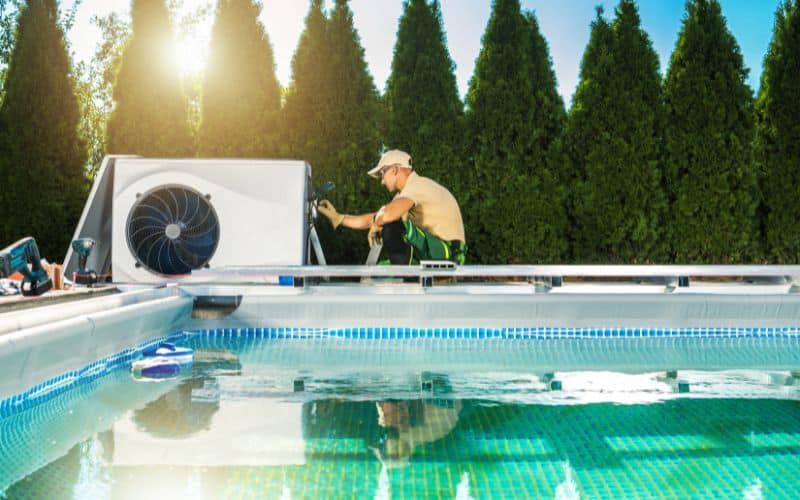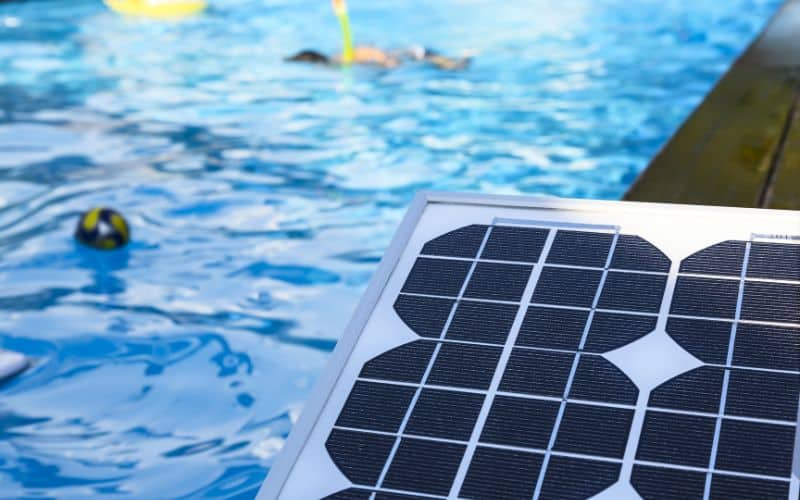
Installing a swimming pool can be a great way to add some fun to your home, but it’s important to remember that it can also have a significant impact on your electric bill. In fact, some homeowners find that their electrical bill may spiral up to an additional $1,500 annually. The cost tends to vary depending on the size of your pool and the type of pump you use, so it’s crucial to understand these factors before diving in.
The average cost of owning a pool can range from $4,000 to $12,000 per year, which includes electricity, water, and minor repairs. You could see an increase of $20 to $25 per month on your insurance, and your property taxes could rise by 5% to 10%. The average swimming pool alone costs $65 to $100 per month or about $800 to $1,200 per year just for electricity.
However, don’t let these figures scare you off. While some costs, such as running your pool pump, are unavoidable, there are ways to manage your expenses. For instance, consider the impact of your pool’s amenities on your electric bill, or how the type of pool heater you use and the temperature you maintain can affect your costs. Understanding these factors can help you make informed decisions and keep your electric bill down.
How Much Does a Pool Raise Your Electric Bill
Owning a swimming pool can indeed have a noticeable impact on your electrical expenses. The average cost of maintaining a pool, including electricity, water, and minor repairs, can range from $4,000 to $12,000 annually. Most homeowners report an increase of $20 to $25 per month on insurance and a 5% to 10% rise in property taxes due to owning a pool. Specific to electricity, the average monthly cost for operating a pool is between $65 to $100, totalling $800 to $1,200 per year.
Factors that Influence the Impact on Electric Bill
The cost of operating a pool can vary greatly, depending on several factors. These include the size of your pool, the heating mechanism you use, the type and efficiency of your pool pump, the additional features you have in your pool, and even the climate in your area.
Size of the Pool
Unsurprisingly, larger pools require more energy to operate. This means, the greater the volume of water, the higher the energy consumption for pumps, heaters, and filtration systems.
Heating Mechanism
The type of pool heater you use can also greatly affect your electricity bill. Traditional electric heaters can be quite costly to operate, but newer, more efficient models can help you save on your energy bills.
Pool Pump and Filtration System
Your pool pump is one of the biggest contributors to your electricity bill. A pump that’s running all day will consume a significant amount of energy. To save on costs, consider turning on your pool pump only when you’re using the pool.
Additional Pool Features
Amenities such as hot tubs, slides, jets, and pool lights can also add to your electricity bill. These features, while enjoyable, require additional energy to operate.
Climate and Seasonal Variations
Lastly, the climate in your area and the time of year can also impact your electricity bill. Operating a pool in a colder climate or during colder months can require more energy, particularly for heating.
Overall, while a pool can incur additional costs, understanding these factors can help you make informed decisions to manage your energy consumption and keep your electricity bills down.

Ways to Reduce the Impact on Electric Bill
Taking control of the costs associated with your swimming pool is easier than you may think. By understanding the factors that impact your electric bill, you can make informed decisions to keep costs down. Here are some effective strategies:
Energy-Efficient Pool Equipment
Investing in energy-efficient pool equipment can significantly reduce your electric consumption. Modern pool pumps and heaters designed with energy-saving technology can consume up to 30% less power. While the initial investment may be higher, you’ll see the savings on your electric bill over the long term.
Optimising Pool Usage
Being mindful of your pool usage can also reduce energy consumption. Consider limiting the use of pool heaters to the cooler months and using your pool during the warmest parts of the day to cut down on heating costs.
Timers and Automation
Another effective strategy is to use timers and automation. Pool pumps don’t need to run 24/7. By programming your pool pump to run during off-peak hours, you can take advantage of lower electricity rates.
Solar Pool Heating
Harnessing the power of the sun is another effective way to reduce your electric bill. Solar pool heating systems may have a higher upfront cost, but they can dramatically cut down on monthly electricity costs.
Covering the Pool
Finally, cover your pool when it’s not in use. A pool cover helps to retain heat, reducing the need for costly heating. It also minimises water evaporation, which can lead to significant water savings.
Remember, every little bit helps. The more of these strategies you incorporate, the more you’ll save on your electric bill.
Conclusion
So, you’ve seen how installing a pool can significantly bump up your electric bill, with potential increases of up to $1,500 annually. The overall cost of owning a pool, including electricity, water, and minor repairs, can fall anywhere between $4,000 and $12,000 each year. It’s clear that factors like the size of your pool, the heating mechanism, the pump and filtration system, additional features, and your local climate all play a part in how much your electric bill will rise. But don’t let this put you off – there are plenty of ways to manage these expenses. By investing in energy-efficient pool equipment, optimising your pool usage, using timers and automation, considering solar pool heating, and covering the pool when it’s not in use, you can significantly cut down on electricity consumption and save yourself some money in the long run. It’s all about making informed decisions and understanding the impact of your pool amenities and the type of heater you use. With a bit of careful planning, you can enjoy your pool without breaking the bank.








